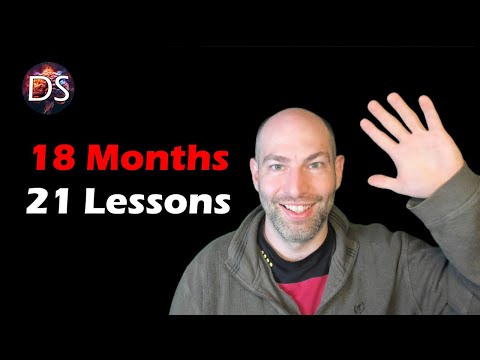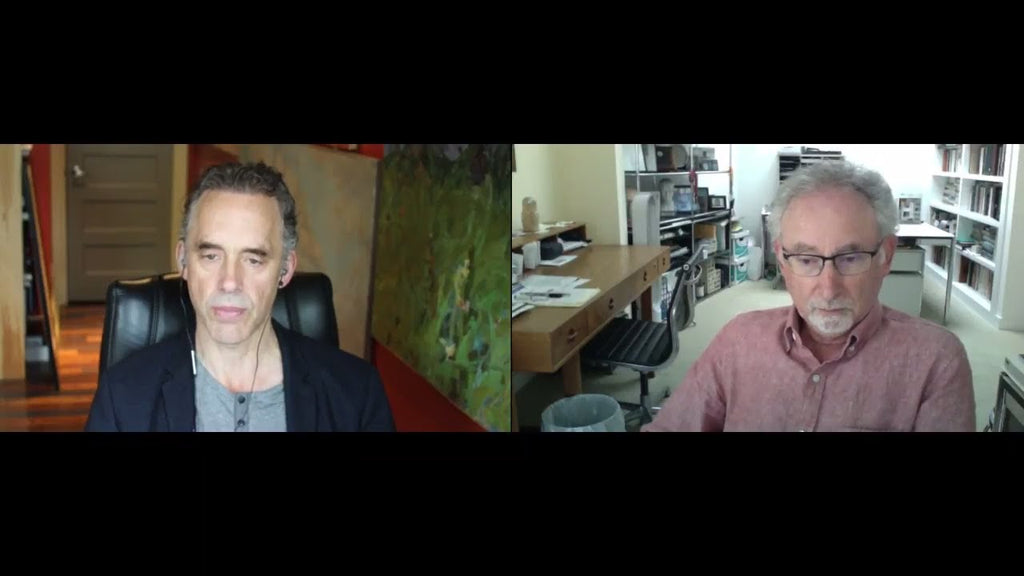Neuroscience RSS
Boost Neuroplasticity & Strengthen Your Brain: Expert Tips
IN THIS EPISODE OF THE HUMAN UPGRADE™…you’ll learn how much control you can actually have over your brain. There’s a new way of accessing your meat operating system that adds an important element that’s been missing from the brain training conversation. Moha Bensofia joins the show to explain a new piece of neurotech called Mendi. He shares the benefits of getting more blood to the front of your brain. Mendi uses neurofeedback to provide visual feedback based on your brain activity.
A headset measures the activity while you play a fun brain-training mobile game. The system uses fNIRS technology to measure blood flow and oxygenation in the pre-frontal cortex of the brain. The brain training game requires focus and calmness, which increases activity and control of your brain’s pathways. By using Mendi, you can learn to control your brain activity and reach greater heights as an entrepreneur, athlete, and professional in any field. Mendi was developed initially for victims of war and trauma, as well as people struggling with anxiety, PTSD, and ADHD.
Neurospicy 18-Month Retrospective - 21 Lessons (With Chapters!)
The key idea of the video is that understanding and accepting one's neurodivergent nature can lead to personal growth and protection against exploitation, while institutions and bullying can create biases and challenges that can be overcome with a growth mindset. Emotional Well-being and Self-Expression 📚 Understanding that people are primarily emotional beings is crucial for effective engagement and marketing strategies. 💪 Invisible disabilities in the neurospicy community can contribute to internalized ableism and the adoption of unrealistic standards and behaviors like perfectionism and workaholism. 💔 Recognizing and breaking the cycle of marginalized self-hatred is crucial for healing and fostering...
The Neuroscience of Intelligence: Dr. Richard Haier
There is almost nothing more important to understand about people than intelligence. It can be measured more accurately than anything else in the social sciences. It differs tremendously and importantly between individuals. It is the single most important determinant of life success. It's very existence, however, remains subject to substantive debate, most of it highly politicized. Dr. Richard Haier has recently written a major book on the topic, The Neuroscience of Intelligence (http://amzn.to/2em55A9), summarized in the following manner:"This book introduces new and provocative neuroscience research that advances our understanding of intelligence and the brain. Compelling evidence shows that genetics plays...
Tags
- All
- Agentic AI
- AGI
- AI
- AI Art
- AI Ethics
- AI Girlfriends
- AI Models
- AI Risk
- ai tools
- Alan D. Thompson
- Alexandr Wang
- Andrew Huberman
- Andrew Ng
- Artificial Cognition
- Aurora Supercomputer
- Authenticity
- Autism Spectrum
- AutoGPT
- Aza Raskin
- Azure Open AI
- Azure OpenAI Service
- Bias Compensation
- Bias Therapy
- Brian Roemmele
- Chain-of-Thought Prompting
- ChatGPT
- Christopher Rufo
- climate change
- Cognition Enhancement
- Cognitive Bias
- Cognitive Content
- Cognitive Performance
- Collective Intelligence
- Collective Stupidity
- Communication
- Consciousness
- Cosmology
- Critical Race Theory
- Daniel Dennett
- Daniel Schmachtenberger
- David Shapiro
- Deep Thought
- Dennis Prager
- Digital Minds
- Digital Thoughts
- Diversity
- Dojo
- Douglas Murray
- Elon Musk
- Emad Mostaque
- Equity
- Eric Weinstein
- Ethical Community Development
- Ethics
- Everyman
- Exponential Enterprise
- Fei-Fei Li
- Foresight
- Fred Lerdahl
- Frontiers Forum
- Futurecrafting
- Futurework
- Gary Marcus
- Gemini
- Gender
- Gender Pronouns
- Generative AI
- Generative Theory of Tonal Music (GTTM)
- Geoffrey Hinton
- Geoffrey Miller
- Glenn Loury
- Governance
- GPGICs
- GPT-4
- GPT-5
- Higher Education
- Human Potential
- Humanities
- Identity
- Ilya Sutskever
- Implicit Association Tests
- Intel
- Intelligence
- James Lindsay
- Joe Rogan
- Jordan B Peterson
- Jungian Archetypes
- Konstantin Kisin
- Language
- Lex Fridman
- Libra
- Life Coaching
- Liv Boeree
- Male Loneliness
- Marcus Aurelius
- Marcus T. Anthony
- Matt Walsh
- Matthew Berman
- Max Tegmark
- MemoryGPT
- Mental Health
- metabotropic receptors (MRs)
- Metacrisis
- Michio Kaku
- Microsoft AI
- Microsoft Copilot
- Microsoft Jarvis
- Microsoft Open AI
- Microsoft Semantic Kernel
- Millennials
- Mind Reading
- Minecraft
- Mirella Lapata
- MIT
- MLLM
- Moha Bensofia
- Morality
- Multimodal Large Language Model
- Multiversal Stories
- Music
- Narcissism
- Neurodivergence
- Neuroplasticity
- Neuroscience
- Nvidia
- OpenAI
- optical computers
- Personal Development
- Peter Bannon
- Peter H. Diamandis
- Philosophy
- pinecone
- Psychology
- Ramani Durvasula
- Ray Jackendoff
- Ray Kurzweil
- Reflection
- Reid Hoffman
- Relationships
- Religion
- Richard Haier
- Robotic Process Automation (RPA)
- robotics
- Sabine Hossenfelder
- Sam Altman
- Sam Harris
- Sebastien Bubeck
- semantic search
- Seneca
- Simulation
- Singularity Ready
- Stephen Fry
- String theory
- Stupidity
- Super Alignment
- Superintelligence
- Susan Blackmore
- Synthetic Intelligence
- Synthetic Mind
- Technology
- Terence McKenna
- Tesla
- Tesla AI
- The Hero Archetype
- Theism
- Theory of Mind
- Thomas Sowell
- Thought
- Thought Experiments
- Transactivism
- transcendence
- Translation
- Tree of Thoughts
- Tristan Harris
- Turing Lectures
- Unconscious Bias Training
- Victor Davis Hanson
- Wes Roth
- Will Caster
- Woke Ideologies
- Worker Productivity
- Worker Satisfaction
- Yann LeCun
- Yuval Noah Harari



